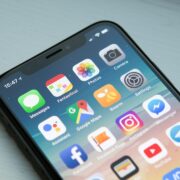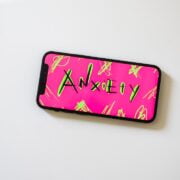
Facebook Down: How to Stay Healthy and Stress-Free
In recent years, social media has become an integral part of our daily lives. It has revolutionized the way we connect with others, share information, and consume content. However, when social media platforms experience downtime, it can have a significant impact on our mental health. The recent Facebook outage serves as a reminder of how reliant we have become on these platforms and the toll it can take on our well-being when they are unavailable.
The purpose of this blog post is to provide tips and strategies for coping with Facebook downtime and creating a healthy relationship with social media. It is important to recognize that while social media can be a valuable tool for communication and self-expression, it can also contribute to stress, anxiety, and feelings of inadequacy. By understanding the negative impact of social media on mental health and implementing strategies to manage these effects, we can cultivate a healthier relationship with these platforms.
Key Takeaways
- Facebook outage can have negative effects on mental health
- Social media can contribute to stress and anxiety
- Disconnecting from social media can improve mental health
- Coping strategies for FOMO include mindfulness and self-care
- Staying connected with friends and family is important during downtime
Understanding the Negative Impact of Social Media on Mental Health
Research has shown that social media use can have a negative impact on mental health. Studies have found that increased use of social media is associated with higher levels of anxiety, depression, and loneliness. The constant exposure to carefully curated highlight reels of other people’s lives can lead to feelings of inadequacy and low self-esteem. This phenomenon is often referred to as “social comparison,” where individuals compare their own lives to the seemingly perfect lives portrayed on social media.
Moreover, social media can contribute to stress and anxiety by creating a constant need for validation and approval. The pressure to maintain an online presence and accumulate likes, comments, and followers can be overwhelming. Additionally, the fear of missing out (FOMO) can lead to heightened anxiety as individuals feel compelled to constantly check their feeds for fear of missing out on important events or updates.
Tips for Reducing Stress and Anxiety During Facebook Downtime
During Facebook downtime, it is important to prioritize self-care and manage stress and anxiety. Here are some practical tips for coping with the absence of social media:
1. Take deep breaths: When you feel overwhelmed or anxious, take a moment to focus on your breath. Deep breathing can help calm the nervous system and reduce stress.
2. Go for a walk: Physical activity has been shown to have a positive impact on mental health. Take advantage of the downtime to go for a walk or engage in any form of exercise that you enjoy.
3. Practice mindfulness: Mindfulness is the practice of being fully present in the moment without judgment. It can help reduce stress and anxiety by bringing your attention to the present moment rather than worrying about the past or future.
4. Engage in self-care activities: Use the downtime as an opportunity to engage in activities that bring you joy and relaxation. This could include reading a book, taking a bath, practicing a hobby, or spending time in nature.
The Importance of Disconnecting from Social Media for Mental Health
Taking a break from social media can have numerous benefits for mental health. By disconnecting from these platforms, individuals can experience improved well-being, better sleep, and increased productivity. Constant exposure to social media can be mentally draining and overwhelming, so it is important to take regular breaks to recharge and refocus.
During Facebook downtime, consider taking a break from all social media platforms, not just Facebook. This will allow you to fully disconnect and reap the benefits of a digital detox. Start by setting boundaries around your social media use, such as designating specific times of the day for checking your accounts or limiting your screen time overall.
Coping Strategies for Dealing with FOMO (Fear of Missing Out)
FOMO, or the fear of missing out, is a common phenomenon experienced by many social media users. The constant stream of updates and events on social media can make individuals feel like they are missing out on important experiences or opportunities. Here are some strategies for managing FOMO:
1. Focus on the present moment: Instead of worrying about what you might be missing out on, focus on the present moment and the activities you are currently engaged in. Practice gratitude for what you have and the experiences you are currently enjoying.
2. Set boundaries with social media: Establish clear boundaries around your social media use to prevent excessive scrolling and comparison. Limit the amount of time you spend on social media each day and consider unfollowing accounts that trigger feelings of inadequacy or comparison.
3. Shift your mindset from FOMO to JOMO: Instead of viewing missing out as a negative experience, embrace the joy of missing out (JOMO). Recognize that it is impossible to be present for every event or experience, and focus on the joy and contentment that comes from being fully present in your own life.
How to Stay Connected with Friends and Family During Facebook Downtime
During Facebook downtime, it is important to maintain social connections with loved ones. Here are some suggestions for staying connected:
1. Call or text them: Use traditional methods of communication, such as calling or texting, to stay in touch with friends and family. These methods can be more personal and intimate than social media interactions.
2. Meet up in person: Take advantage of the downtime to meet up with friends and family in person. Plan a coffee date, go for a walk together, or engage in any activity that allows for face-to-face interaction.
3. Use alternative social media platforms: If you still want to stay connected online, consider using alternative social media platforms that may not be affected by the downtime. Platforms like Instagram, Twitter, or LinkedIn can provide alternative ways to connect with others.
The Benefits of Taking a Break from Social Media
Taking a break from social media can have numerous benefits for mental health. By disconnecting from these platforms, individuals can experience improved well-being, better sleep, and increased productivity. Constant exposure to social media can be mentally draining and overwhelming, so it is important to take regular breaks to recharge and refocus.
During Facebook downtime, consider taking a break from all social media platforms, not just Facebook. This will allow you to fully disconnect and reap the benefits of a digital detox. Start by setting boundaries around your social media use, such as designating specific times of the day for checking your accounts or limiting your screen time overall.
The Role of Mindfulness in Managing Stress and Anxiety
Mindfulness is a powerful tool for managing stress and anxiety. It involves bringing your attention to the present moment without judgment. By practicing mindfulness, individuals can cultivate a greater sense of calm and reduce the impact of stress and anxiety on their mental health.
To practice mindfulness, start by focusing on your breath. Take a few moments to observe your breath as it enters and leaves your body. If your mind starts to wander, gently bring your attention back to your breath without judgment. You can also incorporate other mindfulness practices into your daily routine, such as guided meditations or yoga.
Creating a Healthy Relationship with Social Media
Creating a healthy relationship with social media is essential for maintaining good mental health. Here are some suggestions for cultivating a healthier relationship with these platforms:
1. Set boundaries: Establish clear boundaries around your social media use. This could include limiting the amount of time you spend on these platforms each day or designating specific times for checking your accounts.
2. Limit screen time: In addition to setting boundaries around social media use, consider limiting your overall screen time. Spend more time engaging in activities that bring you joy and fulfillment offline.
3. Unfollow negative accounts: Take inventory of the accounts you follow and unfollow any that trigger negative emotions or comparison. Surround yourself with accounts that inspire and uplift you.
4. Be intentional: Be mindful of your intentions when using social media. Ask yourself why you are using these platforms and whether it aligns with your values and goals. Use social media as a tool for connection and self-expression, rather than a source of validation or comparison.
Embracing Facebook Downtime as an Opportunity for Self-Care and Growth
In conclusion, the recent Facebook outage serves as a reminder of the impact social media can have on our mental health. By understanding the negative effects of social media on mental health and implementing strategies to manage these effects, we can cultivate a healthier relationship with these platforms.
During Facebook downtime, it is important to prioritize self-care and manage stress and anxiety. Take deep breaths, engage in self-care activities, and practice mindfulness to reduce stress and promote well-being. Additionally, consider taking a break from social media altogether to experience the benefits of improved mental health, better sleep, and increased productivity.
Remember to stay connected with loved ones during Facebook downtime by using alternative methods of communication or meeting up in person. Finally, create a healthy relationship with social media by setting boundaries, limiting screen time, and unfollowing negative accounts. By embracing Facebook downtime as an opportunity for self-care and growth, we can prioritize our mental health and well-being in the digital age.
FAQs
What happened to Facebook?
Facebook experienced a global outage on October 4, 2021, which caused the platform to be inaccessible for several hours.
How can I stay healthy during a Facebook outage?
You can stay healthy during a Facebook outage by taking breaks from technology, practicing mindfulness, and engaging in physical activity.
What are the effects of social media on mental health?
Studies have shown that excessive use of social media can lead to increased feelings of anxiety, depression, and loneliness.
How can I reduce stress caused by social media?
You can reduce stress caused by social media by setting boundaries, limiting your time on social media, and focusing on activities that bring you joy and fulfillment.
What are some alternative activities to do during a Facebook outage?
You can read a book, go for a walk, spend time with loved ones, or engage in a hobby or creative activity.


















